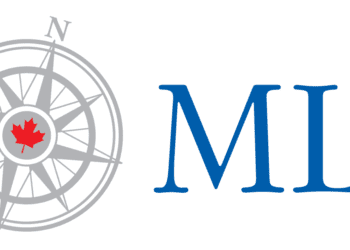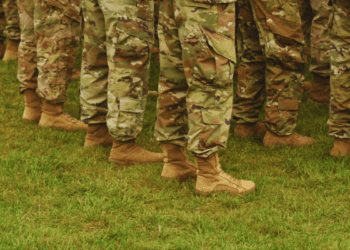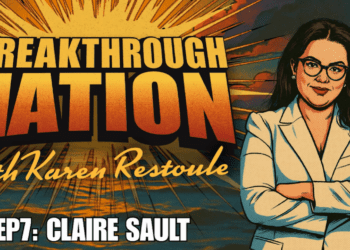Writing in the Globe and Mail, Macdonald-Laurier Institute author Stephen Blank calls on western leaders to reject suggestions that they can’t defend Ukraine against Russian interventions.
Failing to protect Ukraine threatens the West’s credibility across Europe, he says.
“Doing so will fail to bring honour, security or peace – neither in our time, nor in the future”, writes Blank.
Blank is the author of a soon-to-be-released MLI project on Russia and the Arctic.
By Stephen Blank, Sept. 4, 2014
In reported comments ahead of this week’s North Atlantic Treaty Organization summit in Wales, Prof. Stephen Krasner argued that NATO cannot defend Ukraine. Instead, he said, it should focus on protecting the Baltic states from Russian threats. Prof. Krasner also said that Moscow will inevitably achieve its aims in Ukraine, which would remain as a federal or confederated state within a Russian sphere of influence. Ahead of the summit, alliance officials were unwilling to commit to Ukraine’s defence, but reinforced their commitment to defending member states in the Baltics.
We should be clear about what this argument entails. It means conceding the wanton destruction of Ukraine’s sovereignty and territorial integrity, condoning Russia’s right to tear up half a dozen treaties, and accepting the utility of war in Europe.
Frankly, it’s a strange way to protect the Baltic states from Russia. Throwing Ukraine to the wolves (or bears, if you will) hardly strengthens NATO’s capability to protect the Baltics. In fact, it achieves exactly the opposite result. As Ukrainian President Petro Poroshenko has pointed out, Russia’s war against Ukraine threatens all of Europe’s security. The end of the Cold War established as an operating principle the indivisibility of European security, not its division into spheres of influence.
While a treaty appears to be under discussion, the West cannot accept the truncation of Ukraine’s sovereignty and integrity. Leaving Ukraine to Moscow’s tender mercies and resigning NATO to defeat there undermines Western credibility across Europe, not just Poland and the Baltics. Based on present experience, and despite innumerable rhetorical guarantees, there is no certainty that countries such as Germany, Italy and France will sacrifice their ties to Moscow for Estonia, Lithuania or Latvia. Indeed, experience suggests the opposite. The United States and Britain gave guarantees to Ukraine in 1994, but have done little or nothing since to enforce them. In practice, letting Ukraine go demonstrates that our guarantees are worthless, that we will not stand by them despite our rhetoric, and that when the crunch comes, other countries will face Moscow alone.
Surrendering Ukraine can only hasten that inevitable crisis. Fundamentally, Russian President Vladimir Putin aims to overcome the post-1989 European settlement and establish a lasting empire or sphere of influence in Eurasia, a policy that can only mean perpetual conflict, even war. Ceding Ukraine to Russia not only undermines NATO’s credibility and cohesion, it also emboldens Russia to seize other territories, such as the Baltic states. People recommending this outcome either fail to understand or fail to take Russian policy seriously enough.
Moscow wants not only to destroy the post-1989 European settlement, but it also wants to overturn the state boundaries, including those of the Baltic states, that emerged then and are now recognized internationally. Mr. Putin aims to destroy any independent Ukrainian state, period, and augment Russia’s borders to preserve his power. Recognizing no right higher than its own sovereign will, Moscow has sought bases in Serbia and Montenegro, fomented so-called frozen conflicts in Moldova, Georgia and now Ukraine, and perpetuated conflict in Bosnia and Kosovo, as well as Nagorno-Karabakh in the Caucasus. It has annexed Crimea, is annexing former provinces of Georgia and will undoubtedly incorporate eastern Ukraine into Russia as soon as it can.
Russia has proclaimed its right to attack any or all of its neighbours whenever it can fabricate an excuse for doing so. Given its track record, can anyone doubt that having taken Ukraine, it will then attempt to seize more land either in the Baltics, the Balkans or the Caucasus and Central Asia?
Mr. Putin need not properly invade the Baltic states to destabilize them, but could use the tactics of hybrid war, which NATO clearly has difficulty resisting. Cyberstrikes and demonstrations prefigured Russia’s recent Crimean operation; another notable example took place in Estonia in 2007. The Baltic states have been under constant pressure from Russia – having seen NATO’s disappearing act in Ukraine, if Mr. Putin could destabilize them by similar means, he would certainly feel liberated to attack elsewhere without paying an unbearable price.
While Ukraine is admittedly a deeply troubled place, it urgently needs NATO support in the form of weapons, advisers and training, along with U.S. and European Union financial and political support. Indeed, NATO was created precisely to thwart actions like Russia’s current invasion. If anyone needs and deserves an Article V guarantee, it’s Ukraine. Its failure or defeat threatens all of Europe, for if Europe throws Ukraine under the bus, it will inevitably become a new theatre of war and an international nonentity.
The willingness to sacrifice Ukraine expressed by Prof. Krasner and others may pass as realism, but the more one looks at this war, the more it becomes clear that nothing could be more unrealistic than to betray Ukraine. Doing so will fail to bring honour, security or peace – neither in our time, nor in the future.
Stephen Blank is co-author of a forthcoming project on Russia and the Arctic with the Macdonald-Laurier Institute in Ottawa.




